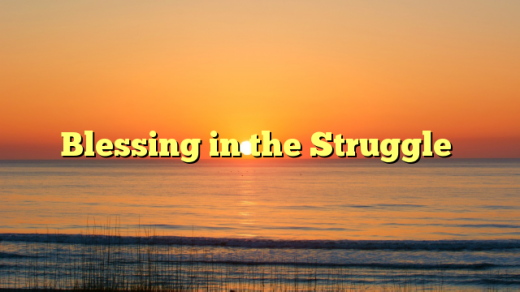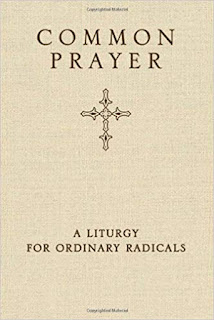The Sunday Lectionary Readings
SUNDAY, August 2, 2020 — 9th Sunday After Pentecost
[Ordinary 18, Proper 13]
(Revised Common Lectionary Year A)
Blessing in the Struggle
Genesis 32:22-31; Psalm 17:1-7, 15; Romans 9:1-5;
Matthew 14:13-21
Opening Statement
God's blessing and provision for us are common threads in these scriptures. God's blessing comes to those who cry aloud to God (Psalm 17:6); Jacob wrestles, and is rewarded with God's blessing for his perseverance (Genesis 32:29). The hungry will be fed, and the sick will be healed (Matthew 14:14, 19-20). God's blessing is so abundant that there is more than enough to go around.
Opening Prayer
(adapted from Genesis 32)
In the darkness of night and the brightness of day, you, O Lord, are present to us. As we wrestle with situations which seem to drain us of our energy; as we struggle to find out who you call us to be, you reach out to us with reassurance of empowerment and courage for the days ahead. Calm our spirits and prepare our hearts and lives to receive your awesome grace. It is in Jesus’ name that we pray. Amen.
Prayer of Confession
(adapted from Genesis 32, Romans 9, Matthew 14)
Gracious God, provider of all we need, we are often content to rely on our own devices, our creativity, our cleverness. We congratulate ourselves for our accomplishments, yet we find that these achievements and acquisitions do not fill the deep hunger inside of us. We long for the Spirit bread you alone can provide. Forgive us, merciful God. Help us receive the blessings you offer, that we may be your bread for the world—blessed, broken for all. Amen.
Words of Assurance
Feel God’s healing love pouring over you and into your lives. Know that God delights in each one of you and will always be present to you. This is indeed the Good News of the Gospel.
The Collect
(from the Book of Common Prayers)
Let your continual mercy, O Lord, cleanse and defend your Church; and, because it cannot continue in safety without your help, protect and govern it always by your goodness; through Jesus Christ our Lord, who lives and reigns with you and the Holy Spirit, one God, for ever and ever. Amen.
Prayer of the Day
Glorious God, your generosity waters the world with goodness, and you cover creation with abundance. Awaken in us a hunger for the food that satisfies both body and spirit, and with this food fill all the starving world; through your Son, Jesus Christ, our Savior and Lord. Amen.
First Reading
Jacob receives God’s blessing
32:22 That night Jacob got up and took his two wives, his two female servants and his eleven sons and crossed the ford of the Jabbok. 23 After he had sent them across the stream, he sent over all his possessions. 24 So Jacob was left alone, and a man wrestled with him till daybreak. 25 When the man saw that he could not overpower him, he touched the socket of Jacob’s hip so that his hip was wrenched as he wrestled with the man. 26 Then the man said, “Let me go, for it is daybreak.”
But Jacob replied, “I will not let you go unless you bless me.”
27 The man asked him, “What is your name?”
“Jacob,” he answered.
28 Then the man said, “Your name will no longer be Jacob, but Israel, because you have struggled with God and with humans and have overcome.”
29 Jacob said, “Please tell me your name.”
But he replied, “Why do you ask my name?” Then he blessed him there.
30 So Jacob called the place Peniel, saying, “It is because I saw God face to face, and yet my life was spared.”
31 The sun rose above him as he passed Peniel, and he was limping because of his hip.
I shall see your face
1 Hear me, Lord, my plea is just;
listen to my cry.
Hear my prayer—
it does not rise from deceitful lips.
2 Let my vindication come from you;
may your eyes see what is right.
3 Though you probe my heart,
though you examine me at night and test me,
you will find that I have planned no evil;
my mouth has not transgressed.
4 Though people tried to bribe me,
I have kept myself from the ways of the violent
through what your lips have commanded.
5 My steps have held to your paths;
my feet have not stumbled.
6 I call on you, my God, for you will answer me;
turn your ear to me and hear my prayer.
7 Show me the wonders of your great love,
you who save by your right hand
those who take refuge in you from their foes.
15 As for me, I will be vindicated and will see your face;
when I awake, I will be satisfied with seeing your likeness.
Second Reading
The glory of God’s people in Israel
9:1 I speak the truth in Christ—I am not lying, my conscience confirms it through the Holy Spirit— 2 I have great sorrow and unceasing anguish in my heart. 3 For I could wish that I myself were cursed and cut off from Christ for the sake of my people, those of my own race, 4 the people of Israel. Theirs is the adoption to sonship; theirs the divine glory, the covenants, the receiving of the law, the temple worship and the promises. 5 Theirs are the patriarchs, and from them is traced the human ancestry of the Messiah, who is God over all, forever praised! Amen.
Gospel Acclamation
Alleluia.Man shall not live on bread alone, but on every word that comes from the mouth of God.Alleluia.
The Gospel
Jesus feeds 5000
14:13 When Jesus heard what had happened, he withdrew by boat privately to a solitary place. Hearing of this, the crowds followed him on foot from the towns. 14 When Jesus landed and saw a large crowd, he had compassion on them and healed their sick.
15 As evening approached, the disciples came to him and said, “This is a remote place, and it’s already getting late. Send the crowds away, so they can go to the villages and buy themselves some food.”
16 Jesus replied, “They do not need to go away. You give them something to eat.”
17 “We have here only five loaves of bread and two fish,” they answered.
18 “Bring them here to me,” he said. 19 And he directed the people to sit down on the grass. Taking the five loaves and the two fish and looking up to heaven, he gave thanks and broke the loaves. Then he gave them to the disciples, and the disciples gave them to the people. 20 They all ate and were satisfied, and the disciples picked up twelve basketfuls of broken pieces that were left over. 21 The number of those who ate was about five thousand men, besides women and children.
Here end the Readings
Click HERE to read today’s Holy Gospel Lesson message
- I believe in God, the Father almighty, creator of heaven and earth.
- I believe in Jesus Christ, his only son, our Lord, who was conceived by the power of the Holy Spirit and born of the Virgin Mary, suffered under Pontius Pilate, was crucified, died, and was buried; he descended to hell. On the third day he rose again; he ascended into heaven, and is seated at the right hand of the Father, and he will come again to judge the living and the dead.
- I believe in the Holy Spirit, the holy catholic church, the communion of saints, the forgiveness of sins, the resurrection of the body, and the life everlasting. Amen.
Holy Communion
A nondenominational serving of bread and wineMany churches around the world are working hard to adapt to online worship, and one challenge is how our members can celebrate communion from home. Though no video can truly replace the experience of celebrating together in our places of worship, we know that where two or more are gathered, the Lord is present.
Benediction
The Spirit sends us forth to serve. Go in peace, knowing that God will always be by your side in all that you do. Go in love, offering healing and hope to others. Go in joy, that others may be lifted and inspired in service. Amen.
Optional parts of the readings are set off in [square brackets.]
The Bible texts of the Old Testament, Epistle, and Gospel lessons are from The Holy Bible, New International Version®, NIV® Copyright ©1973, 1978, 1984, 2011 by Biblica, Inc.® Used by permission. All rights reserved worldwide.
The Daily Lectionary for SUNDAY, August 2, 2020 — 9th Sunday After Pentecost
Blessing in the Struggle
Genesis 32:22-31; Psalm 17:1-7, 15; Romans 9:1-5; Matthew 14:13-21








